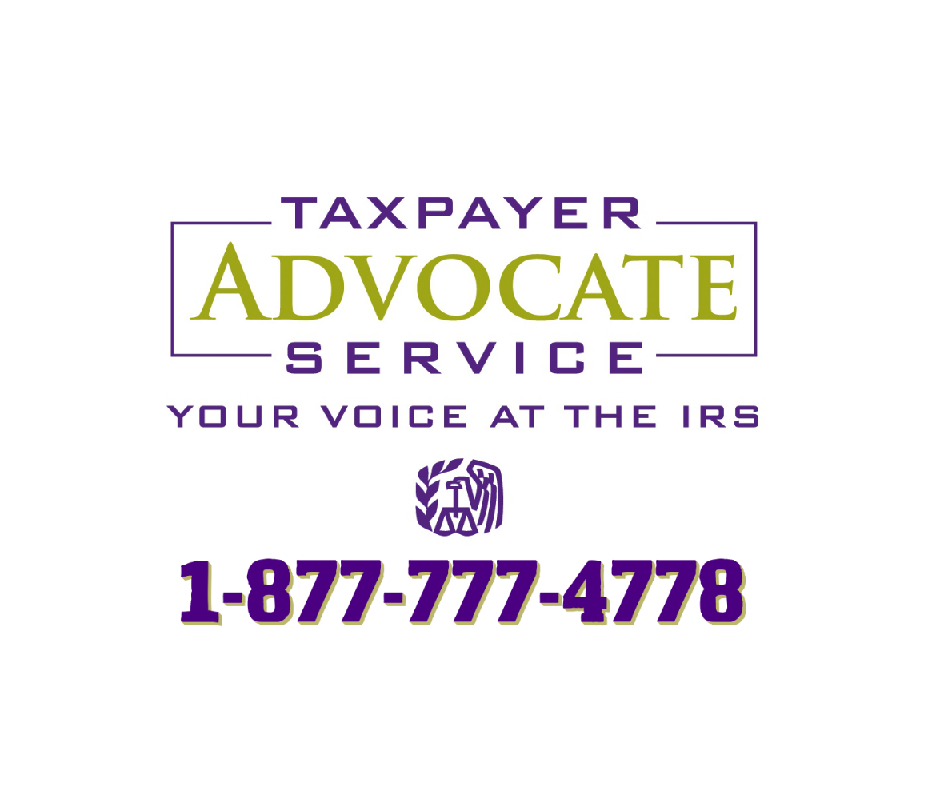
Every year, the National Taxpayer Advocate’s Annual Report to Congress identifies at least 20 of the nation’s most serious tax problems. These issues can affect taxpayers’ basic rights and the ways they pay taxes or receive refunds, even if they’re not involved in a dispute with the IRS.
As your voice at the IRS, the National Taxpayer Advocate uses the Annual Report to elevate these problems and recommend solutions to Congress and the highest levels of the IRS.
- Most Serious Problem 1 – Tax Law Questions: The IRS has agreed to study the feasibility of returning to its previous practice of answering in-scope tax law questions year-round on the phones.
- Most Serious Problem 2 – Chief Counsel Transparency: IRS Counsel has agreed to clarify the standards that should be considered when deciding whether legal advice should be issued in a formal memorandum.
- Most Serious Problem 4 – Free File: The IRS has agreed to make numerous improvements to the Free File program, including evaluating ways to expand the program for English as second language taxpayers.
- Most Serious Problem 5 – False Positive Rate: The IRS has agreed to take steps to evaluate the effectiveness of its fraud detection systems (and their associated high false-positive rates) and to collaborate with TAS on a study analyzing why some taxpayers delay responding to IRS identity-authentication notices.
- Most Serious Problem 9 – Field Examination and Most Serious Problem 10 – Office Examination: For these two problems, the IRS continues to disagree that it needs to more carefully track what happens after an audit, including whether the taxpayer appeals and maintains future compliance, to better refine its audit selection process and maximize limited resources.
- Most Serious Problem 11 – Post Processing Math Error and Most Serious Problem 12 – Math Error Notices: The IRS has declined to adopt a policy to limit its use of math error authority to circumstances least likely to burden taxpayers or waste IRS resources. While it did agree to implement some of TAS’s recommended changes to improve math error notice clarity, the IRS has not adopted TAS’s recommendations to improve the efficiency of math errors and protect taxpayer rights.
- Most Serious Problem 13 – Statutory Notices of Deficiency: The IRS has agreed to include specific TAS office information in statutory notices of deficiency.
- Most Serious Problem 15 – Economic Hardship: While the IRS has implemented certain safeguards for taxpayers experiencing economic hardship, it has not agreed to implement a systemic economic hardship indicator that would identify taxpayers who have incomes lower than their allowable living expenses and no detectable assets. We recommended the IRS implement an economic hardship indicator to help ensure it doesn’t collect from low-income taxpayers under circumstances that would leave them without adequate means to provide for their basic living expenses.
- Most Serious Problem 16 – Field Collection: The IRS has not appropriately staffed and trained its field collection function to minimize taxpayer burden and Ensure taxpayer rights are protected.
- Most Serious Problem 17 – IRS’S AUTOMATED COLLECTION SYSTEM (ACS): ACS Lacks a TaxpayerCentered Approach, Resulting in a Challenging Taxpayer Experience and Generating Less Than Optimal Collection Outcomes for the IRS.
- Most Serious Problem 18 – OFFER IN COMPROMISE: Policy Changes Made by the IRS to the Offer in Compromise Program Make It More Difficult for Taxpayers to Submit Acceptable Offers.
- Most Serious Problem 19 – PRIVATE DEBT COLLECTION: The IRS’s Expanding Private Debt Collection Program Continues to Burden Taxpayers Who Are Likely Experiencing Economic Hardship While Inactive Private Collection Agency Inventory Accumulates.
- Most Serious Problem 20 – PRE-TRIAL SETTLEMENTS IN THE U.S. TAX COURT: Insufficient Access to Available Pro Bono Assistance Resources Impedes Unrepresented Taxpayers From Reaching a Pre-Trial Settlement and Achieving a Favorable Outcome
The National Taxpayer Advocate Purple Book
As part of the report, the Advocate has released the second edition of “The Purple Book,” which presents 58 legislative recommendations intended to strengthen taxpayer rights and improve tax administration. Many of the recommendations have been made in detail in prior National Taxpayer Advocate reports, but others are presented in this publication for the first time.
During the last few years, Congress has showed renewed interest in examining and improving the operations of the IRS. The House Ways and Means Subcommittee on Oversight has held several hearings to consider “IRS reform,” and the House passed the Taxpayer First Act of 2018 by a unanimous vote of 414-0 last April. Several bills to improve IRS operations were also introduced in the Senate. Although none of these bills ultimately was enacted and the National Taxpayer Advocate does not endorse every provision in every bill, the report says these bills overall would go a long way toward helping taxpayers and modernizing the IRS, and it urges Congress to again consider comprehensive tax administration legislation in 2019. The Purple Book is designed to assist the tax-writing committees in their efforts by offering a wide range of proposals in a concise, easy-to-read format.
TAS research studies and literature reviews
Volume two of the report presents research studies on the following topics: (1) the potential for a Pay-As-You-Earn (PAYE) withholding system to simplify and improve U.S. tax administration; (2) an assessment of how the IRS uses its Allowable Living Expense standards when determining a taxpayer’s ability to pay; (3) an analysis of how taxpayers respond to the penalty for substantial understatement of tax; (4) an analysis of the impact IRS audits have on taxpayer attitudes and perceptions, as reflected in a national survey; (5) an assessment of the IRS’s offer-in-compromise program for business taxpayers; and (6) a further analysis of the effectiveness of notices of federal tax lien and alternative IRS letters on individual tax debt resolution.
The report also contains a literature review on ways to improve IRS notices by taking into account psychological, cognitive, and behavioral science insights.
Please visit www.TaxpayerAdvocate.irs.gov/2018AnnualReport for more information.

